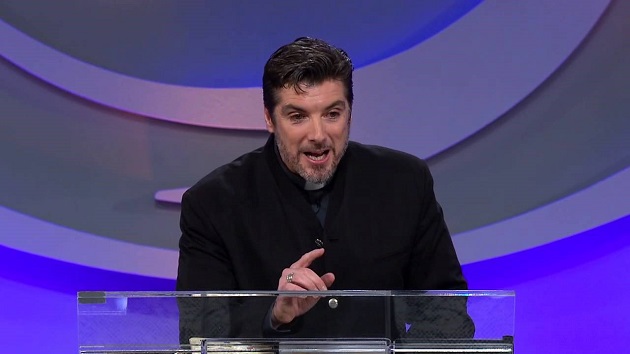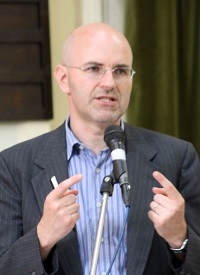Was Tony Palmer right when he declared that Luther’s protest is over?

Question: Is the Protestant Reformation over?
The late Tony Palmer replied in the affirmative. Alluding to the 1999 Joint Declaration on the Doctrine of Justification (JDDJ) by the Lutheran World Federation and the Roman Catholic Church, he openly proclaimed to an enthusiastic gathering at Kenneth Copeland’s Eagle Mountain International Church (Texas) that “Luther’s protest is over”. Asked Palmer, “If there is no more protest; how can there be a Protestant Church? Maybe now we’re all Catholics again”.[1] 1999, for Palmer, marked the end of the Reformation.
Our position, however, is somewhat less buoyant. ‘Not so fast, Bishop Palmer!’ All things considered, by no means did 1999 bring Protestantism to a close. The old doctrinal dispute about justification has not been put to bed just yet. As well as the slippery language employed in JDDJ which is nigh on impossible to understand, it should be pointed out that nothing has changed with regards to the official stance of the Vatican in the Catechism of the Roman Catholic Church (CCC). Catholic theology continues to mix justification with baptismal regeneration and sanctification, meaning that justification is a process to which the believer must continually add his or her own merit in order to achieve full salvation rather than depending wholly upon the free righteousness of Christ imputed by faith alone.[2] By no means, then, is Luther’s protest over. What would our German monk have to say about a sacramental doctrine that ultimately turns justification into a synergistic affair of divine-human cooperation?
Besides the fact that the only two Protestant families that have signed JDDJ to date are the Lutheran World Federation (31st October 1999) and the World Methodist Council (23rd July 2006), there are host of other problematic theological topics that continue to divide Rome from Wittenberg. Mariology, papal authority, prayers to the saints, Purgatory, baptismal regeneration, Transubstantiation, the clergy/ laity divide, the Apocrypha, the seven sacraments and the doctrine of sin are just some major issues that need to be dealt with in the light of Scripture.
 Leonardo de Chirico.
Leonardo de Chirico. Nevertheless, beyond this mere atomistic approach to Roman Catholicism comes the innovative method announced by the Reformed scholar Leonardo De Chirico in his 2002 doctoral thesis Evangelical Theological Perspectives on Post-Vatican II Roman Catholicism. Instead of seeing the division between Catholicism and Protestantism as primarily a matter of isolated doctrines, De Chirico proposes that Evangelicals should start to see Romanism as a complex theological system which orients around two key loci, viz., the nature-grace interdependence whereby human nature is complemented by divine grace (hence pro-synergism) and the Roman Catholic Church as the mediator of the Roman system. It is this systematic analysis of Romanism that allows us to draw the conclusion that the Reformation is far from over. His method was applied to the CCC in Gregg Allison’s recent work Roman Catholic Theology & Practice: an Evangelical Assessment (2014).
One of the chief insights of De Chirico’s research is that Rome’s epistemological model is based upon an et-et system which allows conflicting paradigms to be fused into one whereas the Reformation stance is founded upon the inherently divisive either-or model culminating in the five solas.
Ultimately, then, the Catholic-Protestant divide is a lot more radical than just ivory-tower bickering over unconnected doctrines; there is a whole system at work beneath both confessions. So, to respond to Palmer’s Erasmian-style declaration, Luther’s protest could only truly be “over” if one of two developments occurred: either Rome renounces its et-et philosophy and embraces the Reformation sola model or Protestantism opts to downplay its radical either/ or thinking and allows itself to be absorbed into the complex world of Roman Catholicism. Both possibilities, however, seem incredibly unlikely.
Either way, judging by the way things stand at the moment, our view is that it looks like the Reformation is here to stay for at least another five hundred years.
Sorry, Mr. Palmer!
[2] “Justification is not only the remission of sins, but also the sanctification and renewal of the interior man” (CCC 1989).

Las opiniones vertidas por nuestros colaboradores se realizan a nivel personal, pudiendo coincidir o no con la postura de la dirección de Protestante Digital.
Si quieres comentar o